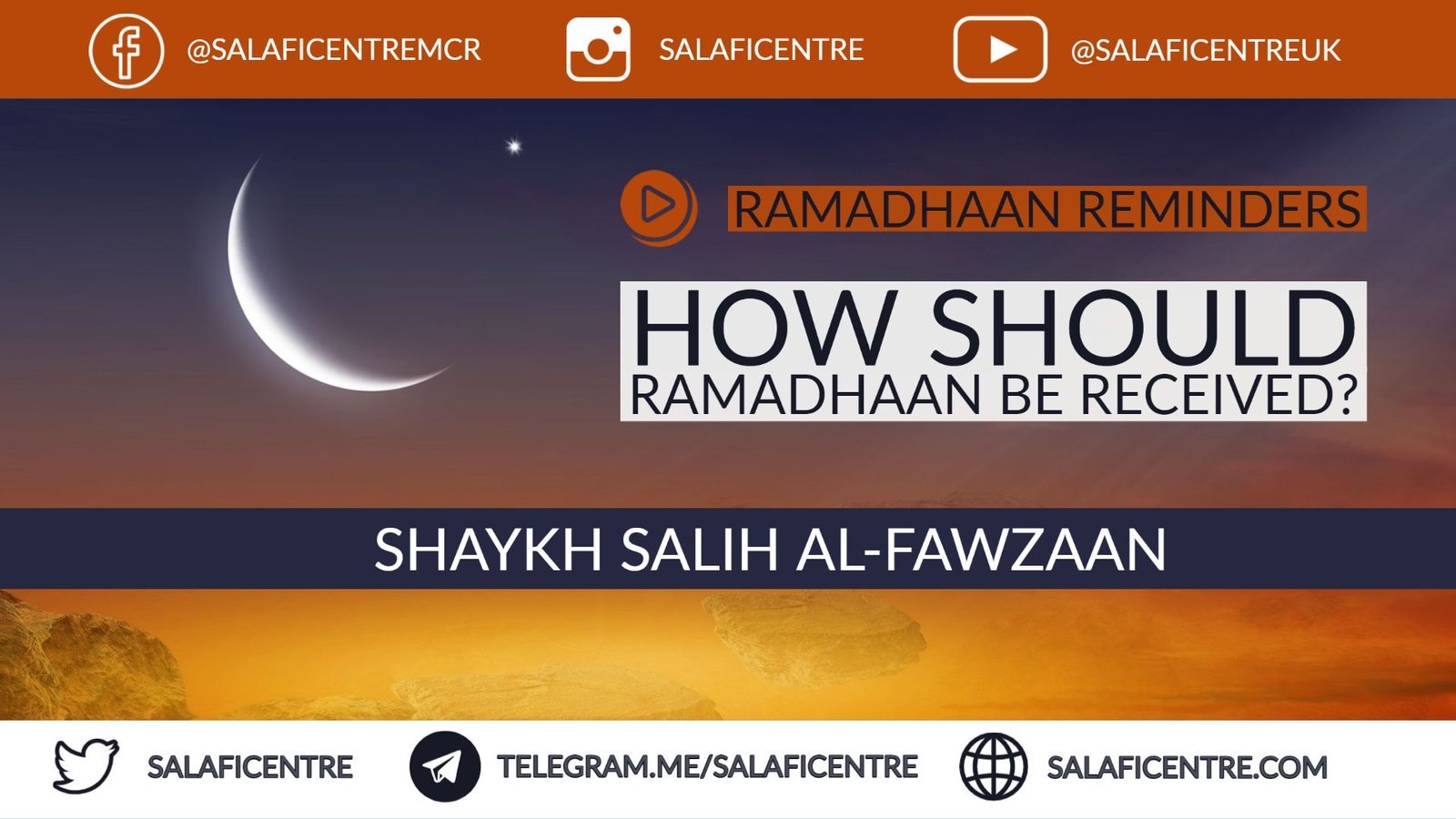قال الله تعالى: كل عمل ابن آدم له إلا الصوم فإنه لي وأنا أجزي به. والصيام جنة فإذا كان يوم صوم أحد كم فلا يرفث ولا يصخب فإن سابه أحد أو قاتله فليقل إني صائم، والذي نفس محمد بيده لخلوف فم الصائم .أطيب عند الله من ريح المسك للصائم فرحتان يفرحهما، إذا أفطر فرح بفطره، وإذا لقي ربه فرح بصومه
Abu Hurayrah رضي الله عنه reported that the Messenger of Allah صلى الله عليه وسلم , said, “Allah, the Mighty and Exalted said: ‘Every act of the son of Adam is his except for fasting; for indeed it is for Me and I will give the reward of it.’ Fasting is a salvation from the Hell-Fire. Therefore if one of you is fasting he should not be obscene in his language nor indulge in unnecessary argument. If someone insults him or tries to pick a fight with him, he should say to that individual: “I am fasting.””
“I swear by him whose hand is Muhammad’s soul, the bad breath from the mouth of the individual who fasts is, with Allah, better than the fragrance of the musk. The one who fasts has two occasions of happiness, the first one is his happiness when he breaks his fast, and the second happiness is when he receives his reward with his Lord” [collected by Al-Bukhari and Muslim]
In another narration of Al-Imam Muslim there is the wording;
كُلُّ عملِ ابنِ آدمَ لَهُ يُضَاعفُ الحَسَنَة بعَشرِ أمثالِها إلى سَبْعِمائِة ضِعْفٍ، قَالَ الله تعالى إِلاَّ الصَومَ فإِنه لِي وأَنَا أجْزي به يَدَعُ شهْوَتَه وطعامه من أجْلِي
“Every act of the son of Adam is His, every good deed will be multiplied for him ten to seven hundred times, except fasting, for verily it is Mine and I give the reward for it. The slave restrains his sexual desire(s) and food for My sake”
Shaykh Uthaymeen رحمه الله explains:
This great Hadith indicates the virtues of fasting from many aspects:
The First Aspect
Allah has chosen fasting for Himself besides the other acts of worship, and this is only because of the nobility of fasting with Allah, and because of His love for this worship. Likewise (fasting) proves the sincerity of the slave with His Lord. That is because fasting is a secret act of worship between the slave and his Lord. None can witness it except Allah. Sometimes the one who fasts maybe in seclusion far away from the people and can do what is forbidden for the one who fasts to do, but he will refrain himself from it out of fear of Allah and his hope in His reward. He knows that he has a Lord that can see him in his seclusion. Thereupon, Allah thanked him for his sincerity and chose to reward the one who fasts for his fasting besides the rest of the acts of worship. That is why Allah said “He leaves his sexual desire(s) and his food for My sake.” The benefit of this virtue appears as well on the Day of Judgement as Ibn Uyaynah, May Allah have mercy on him, said: “On the day of Judgement, Allah will reckon His slave and will pay his grievance from his deeds until when all his deeds are gone except fasting, Allah will pay his grievance for him and grant him paradise with his fasting” [Reported inAt-Targhib wa At-Tarhib]. [¹]
The Second Aspect
Allah said regarding fasting “I give the reward of fasting”. He has attributed the reward of fasting to Himself, that is because good deeds are multiplied by numbers, one good deed is multiplied by ten to seven hundred and more, but as for fasting, Allah has attributed its reward to himself without the consideration of a number. Allah, the Most High is the Most Generous, the Most Bounteous, and of course the greatness of gifts is based on the greatness of the giver. Therefore the reward of fasting will be very great without a limit.
Fasting is to exercise patience upon the obedience of Allah, being patient with Allah’s set limits, and being patient upon the harms that are written on you of hunger, thirst, and weakness in one’s body and soul. The three types of patience are all found in the one who fasts. Therefore the one who fasts qualifies to be (considered) amongst the patient. Allah said:
“Verily, the patient will have their reward without measure.” [Az – Zumar: 10]
The Third Aspect
Fasting is a protection and a veil that shields you from idle-talk and ill-words. That is why the Prophet said:
“When one of you is fasting he should not say bad words or argue” [Collected by Al-Bukhari]
Likewise, fasting protects a person from the Hell-fire, as it is narrated by Al-Imam Ahmad in his Musnad with a sound chain of narration from the narrations of Jabir: “Fasting is a protection; with it a slave is protected from the Hell-fire.” [Al- Albani graded it to be Hasan in Sahih Al – Jami’]
The Fourth Aspect
The bad breath from the one who fasts is better than the smell of musk with Allah, because it is from the traces of fasting. Due to that it is beloved to Allah more than the smell of musk. If this indicates anything, it indicates the magnitude of fasting with Allah. Even the thing that is disliked by the people and is disgusting to them, with Allah it is beloved because it derives from the (slaves) obedience to Allah by the way of fasting.
___________________________
[¹] مجالس شهر رمضان، المجلس الثاني
“Sittings of Ramadhan” Translation by Riwayah Publishing





